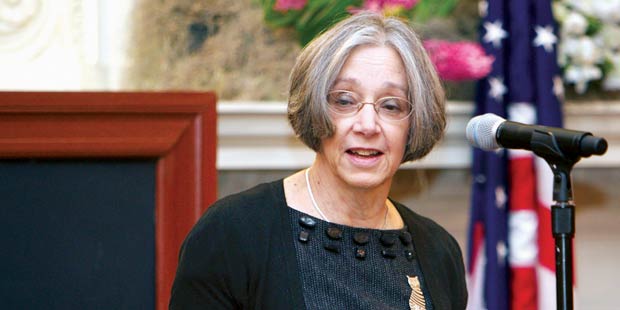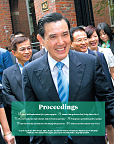Honoring Her Honor
Printer Friendly VersionWhen Chief Judge Diane Wood of the US Court of Appeals for the Seventh Circuit was honored last February as the dedicatee of the latest volume of the Annual Survey of American Law, she received an extraordinary compliment from Oscar Chase, Russell D. Niles Professor of Law.
Wood is “the Learned Hand of our generation,” said Chase, referring to the Second Circuit’s chief judge from the 1920s to the early ’60s, whose brilliance and eloquence often propelled his name onto the Supreme Court shortlist. Appointed to the Seventh Circuit in 1995 by Bill Clinton, Wood was twice considered for the nation’s highest court by Barack Obama, an idea Chase heartily endorsed.
“Judge Wood is known for tactfully dealing with others in sometimes prickly circumstances,” said Dean Trevor Morrison, “not through grandstanding or combativeness, but by sheer intellectual force.”
That force, said Yael Tzipori ’14, editor-in-chief of the Annual Survey, shows law students that “it is possible to resolutely and articulately hold your position, even when you’re in the minority.”
Wood’s dissents often prevail in the end, notably in the 2008 matter of Bloch v. Frischolz, in which a Jewish family had affixed a mezuzah to their doorpost—only to have it repeatedly removed by a condominium association per building rules.
A three-member panel of the Seventh Circuit, including Wood, declined to hear Bloch. Wood’s dissent, based on the right to free expression, prompted the court to rehear the case en banc. Both her panel colleagues—Judges Richard Posner and Frank Easterbrook—eventually reversed themselves, joining the full court’s unanimous decision.
Eleanor Fox ’61, Walter J. Derenberg Professor of Trade Regulation at NYU Law, is a 30-year friend of Wood and a fellow practitioner in antitrust law and international procedure. She said of Wood’s decisions: “They read like stories about people, which of course is what they are.”
—

